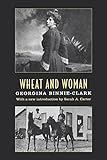Wheat and Woman / Georgina Binnie-Clark.
Material type: TextSeries: HeritagePublisher: Toronto : University of Toronto Press, [2006]Copyright date: ©2006Description: 1 online resource (388 p.)Content type:
TextSeries: HeritagePublisher: Toronto : University of Toronto Press, [2006]Copyright date: ©2006Description: 1 online resource (388 p.)Content type: - 9781442659797
- 630.92 22
- online - DeGruyter
| Item type | Current library | Call number | URL | Status | Notes | Barcode | |
|---|---|---|---|---|---|---|---|
 eBook
eBook
|
Biblioteca "Angelicum" Pont. Univ. S.Tommaso d'Aquino Nuvola online | online - DeGruyter (Browse shelf(Opens below)) | Online access | Not for loan (Accesso limitato) | Accesso per gli utenti autorizzati / Access for authorized users | (dgr)9781442659797 |
Frontmatter -- Introduction -- Introduction 2 -- Contents -- I: HARVEST HOME -- II: SPRING -- III: WINTER -- IV: THE TURN OF THE TIDE
restricted access online access with authorization star
http://purl.org/coar/access_right/c_16ec
An established writer before she came to Canada, Georgina Binnie-Clark (1871-1947) settled in Saskatchewan in 1905 to become a farmer. It was an unlikely ambition for a woman in her day, particularly an English gentlewoman, and in the opinion of many, an impossible one. The reaction of onlookers was unhesitatingly and unqualifiedly unsupportive. Binnie-Clark, however, proved their skepticism to be unfounded.Originally published in 1914, Wheat and Woman is an autobiographical account of Georgina Binnie-Clark's first three years on the prairies, the story of how she learned to define and deal with her anomalous position in pre-war prairie society. Although Binnie-Clark does not dismiss the difficult lessons of life on the land for an 'English greenhorn,' or the loneliness of a woman pursuing what was considered to be a man's job, she emphasizes the unique opportunities for women in Canada. If life was difficult in Canada, it was impossible, for some, in England. With a surplus population of more than a million women, most stood almost no statistical chance of finding a husband in England. The gentlewomen among them were barred by class from all but a few overcrowded and underpaid occupations.Wheat and Woman also illuminates the sexual politics of settlement. Binnie-Clark was only too familiar with the limitations that Canadian law placed on women. Among women of the prairies, chief among these was the homestead law, which excluded all but a handful of women from the right to claim a free farm from the Dominion's public lands. This new reprint of Binnie-Clark's autobiographical writing includes an introduction by Susan Jackel, written for a 1979 edition of the text, as well as a new scholarly introduction by historian Sarah A. Carter, who received a Killam Fellowship for the study of Great Plains women of Canada and the United States.Wheat and Woman is a fascinating record of a gifted and determined woman's experience in prairie farming and a unique document in Canadian social history.
Mode of access: Internet via World Wide Web.
In English.
Description based on online resource; title from PDF title page (publisher's Web site, viewed 02. Jun 2024)


